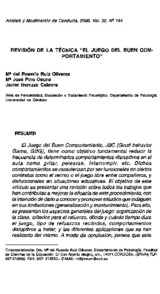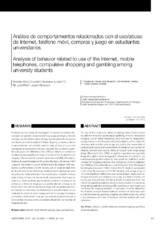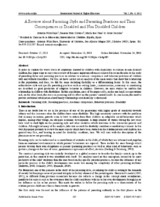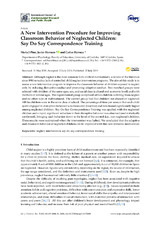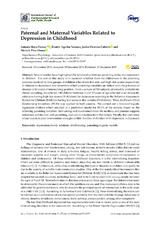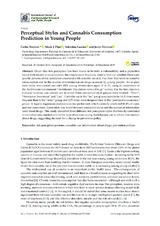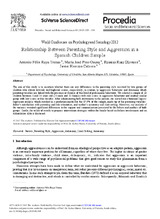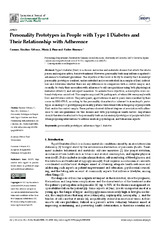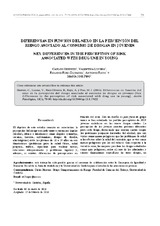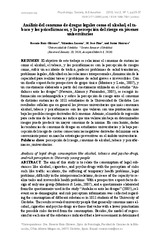Buscar
Mostrando ítems 1-10 de 15
Revisión de la técnica "el juego del buen comportamiento"
(Universidad de Huelva, 2006)
El Juego del Buen Comportamiento, JBC (Good behavior
Game, GBG), tiene como objetivo fundamental reducir la
frecuencia de determinados comportamientos disruptivos en el
aula como gritar, pelearse, interrumpir, etc. ...
Análisis de comportamientos relacionados con el uso/abuso de Internet, teléfono móvil, compras y juego en estudiantes universitarios
(Sociodrogalcohol, 2010)
El objetivo de este trabajo de investigación es conocer los hábitos relacionados
con posibles conductas adictivas (juego patológico, Internet,
compras, uso del teléfono móvil, etc.) que pueden presentar los jóvenes
estudiantes ...
A Review about Parenting Style and Parenting Practices and Their Consequences in Disabled and Non Disabled Children
(Sciedu Press, 2013)
In order to explain the worst levels of adaptation showed by children with disabilities in relation to non disabled
children, this paper aims to carry out a review of the most important advances achieved in recent decades ...
A New Intervention Procedure for Improving Classroom Behavior of Neglected Children: Say Do Say Correspondence Training
(MDPI, 2019)
Although neglect is the most common form of child maltreatment, a review of the literature since 1980 reveals a lack of controlled child neglect intervention programs. The aim of this study is to assess a new intervention ...
Paternal and Maternal Variables Related to Depression in Childhood
(MDPI, 2020)
Several studies have highlighted the relationship between parenting styles and depression in children. The aim of this study is to ascertain whether there are differences in the parenting practices received by two groups ...
Perceptual Styles and Cannabis Consumption Prediction in Young People
(MDPI, 2020)
Given that risk perception has been found to be both a vulnerability and a protective factor with respect to consumption, the objectives of this study were to find out whether there exist specific patterns of risk perception ...
Relationship Between Parenting Style and Aggression in a Spanish Children Sample
(Elsevier, 2013)
The aim of this study is to ascertain whether there are any differences in the parenting style received by two groups of children who obtain low-risk and high-risk scores, respectively, in relation to aggressive behaviour ...
Personality Prototypes in People with Type 1 Diabetes and Their Relationship with Adherence
(MDPI, 2021)
Type 1 diabetes (Dm1) is a chronic endocrine and metabolic disease that affects the whole person and requires active, decisive treatment. However, personality traits may influence a patient’s adherence to treatment guidelines. ...
Diferencias en función del sexo en la percepción del riesgo asociado al consumo de drogas en jóvenes
(UNED, 2016)
El objetivo de este estudio consiste en caracterizar la percepción del riesgo asociado tanto a sustancias legales (alcohol, tabaco e inhalantes) como ilegales (cannabis, cocaína, heroína, anfetaminas, drogas de diseño, ...
Análisis del consumo de drogas legales como el alcohol, el tabaco y los psicofármacos, y la percepción del riesgo en jóvenes universitarios
(Universidad de Almería, 2010)
El objetivo de este trabajo es relacionar el consumo de sustancias como el alcohol, el tabaco, y los psicofármacos con la percepción de riesgos como, sufrir un accidente de tráfico, padecer problemas de salud transitorios, ...

